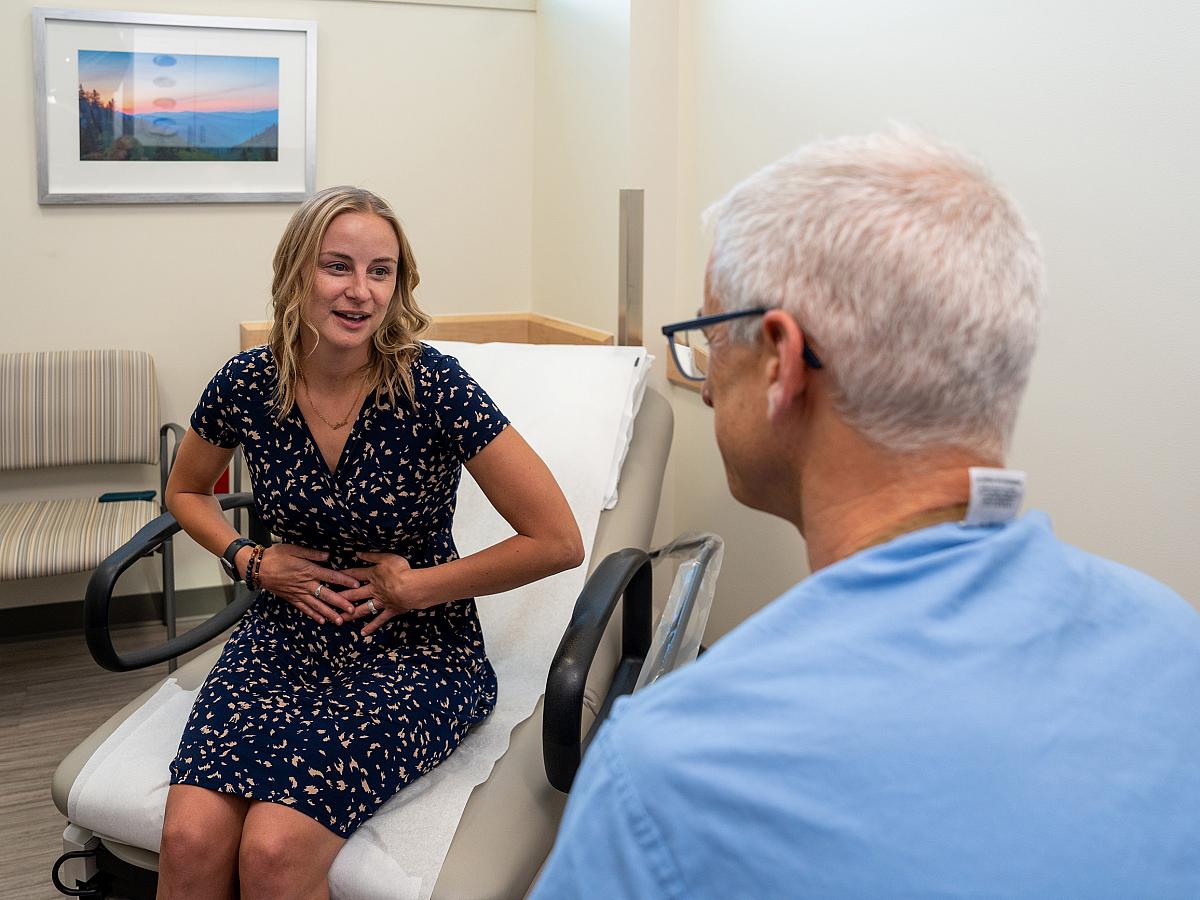
Surgical Procedures for Uterine Fibroids
Uterine fibroids, or myomas, are common benign (noncancerous) tumors that affect around 75 percent of women at some point during their lives. Our specialists typically treat fibroids with non-surgical methods first before we recommend surgery for persistent symptoms.
Why Choose University of Utah Health?
U of U Health offers a comprehensive program with the most effective treatment options for uterine fibroids. Our multidisciplinary specialists from urology, women’s health, and interventional radiology will work with you to customize an individualized treatment plan that manages your symptoms and aligns with your reproductive goals. Our highly trained specialists have years of experience successfully performing noninvasive and minimally invasive techniques.
Types of Fibroid Surgery

U of U Health offers the following treatments to shrink fibroids and stop any fibroid-related bleeding.
- Uterine artery embolization — During this less-invasive procedure, an interventional radiologist will place a catheter (a long, thin tube) through your groin and thread it up to block the artery on both sides of the uterus. This treatment method shrinks a fibroid and reduces bleeding by approximately 50 percent.
- Hysteroscopic myomectomy — During this outpatient procedure, your surgeon will dilate your cervix then shave down the fibroid in pieces until it’s removed.
- Laparoscopic myomectomy — This procedure uses a laparoscope (a tool with a camera attached) to remove your fibroid.
- Abdominal myomectomy — For larger fibroids or multiple fibroids, your surgeon will make a cut on your belly (usually near the “bikini line”) to remove them surgically.
- Hysterectomy — Removing the uterus is the most definitive way to get rid of fibroids, especially if you're done with childbearing.
- Endometrial ablation — This procedure uses heat, extreme cold, electricity, or other methods to remove tissue from your uterine lining. It does not require an incision (cut) and has a high patient satisfaction rate.
Who Is a Candidate for Fibroid Surgery?
The severity of symptoms typically determines the need for surgery.
Those symptoms may include:
- bleeding,
- pain,
- pelvic pressure, and
- frequent urination.
Since most fibroids don’t require surgery, your doctor will often monitor them as long as they don’t cause symptoms that significantly affect your quality of life.
Find a Uterine Fibroid Specialist
How to Prepare for Fibroid Surgery
Your doctor may shrink your fibroids with other treatments for two to three months before surgery to make them easier to remove. Your health care team will counsel you on the risks and benefits of surgery, as well as what to expect when recovering. The following instructions will help you prepare for surgery.
- If you smoke, plan to quit six weeks before surgery.
- Avoid aspirin and other blood thinners before surgery.
- Follow your doctor's instructions about when you should stop eating and drinking before your procedure.
- Arrange for any necessary help at home as you recover.
You should wear loose, comfortable clothing on the day of your surgery. You will need someone to drive you home after the procedure.
Fibroid Surgery Recovery Time
- Hysteroscopic myomectomy — You will go home a couple of hours after the procedure. You will be able to go back to work and drive the next day if you like. However, we encourage patients to take a couple of days off.
- Laparoscopic myomectomy — This procedure requires more healing time than less invasive procedures. You should be able to drive within the week and return to work in one to three weeks.
- Abdominal myomectomy — You will need to spend one to two nights in the hospital after undergoing this procedure. You will be able to drive and return to a desk job in two weeks. We recommend waiting six weeks to return to more strenuous work.
What to Expect after Uterine Fibroid Surgery
Diet after Uterine Fibroid Surgery
There’s no special diet required after you have uterine fibroid surgery.
Do You Lose Weight after Fibroid Surgery?
Since fibroids aren’t hormonally active, patients will only lose the minimal weight of the fibroids.
How Long Do Fibroid Surgery Results Last?
Fibroid surgery is highly effective, but fibroids may grow back for some patients. An estimated 15 percent of patients will have fibroids return within two years after surgery. Once you reach menopause (period in a woman's life when their menstrual cycle stops), most fibroids will begin to shrink due to a drop in estrogen levels.
Pregnancy after Fibroid Removal
Fibroid removal will help your fertility since some fibroids affect your ability to get pregnant. However, if a fibroid pushes deep into the uterine cavity, removal may cause scarring that has been associated with miscarriage. Significant scarring could also impact your ability to get pregnant.
If you had a myomectomy that significantly cut into your uterine muscle, your uterus will weaken. As a result, you'll likely have to deliver your baby via cesarean section, which is scheduled around 37 weeks to reduce the risk of uterine rupture. Doctors rarely perform myomectomies during pregnancy due to the risk of complications.
Fibroid Surgery Risks
We will counsel you in detail about fibroid surgery risks and side effects specific to your planned procedure. Most of the following complications are rare, but may occur, such as:
- bleeding;
- infection;
- uterine perforation (damage to the uterus wall);
- fluid overload syndrome (when too much fluid is left inside your body after the procedure);
- blood clots in your legs or lungs; or
- injury to surrounding nerves, blood vessels, and organs such as your intestines and urinary tract.
Make an Appointment with Our Specialists
If you have symptoms of uterine fibroids or are considering treatment for your fibroids, call 801-213-2995 to schedule an appointment with one of our specialists. No physician referral is necessary to see one of our uterine fibroid specialists for treatment.





